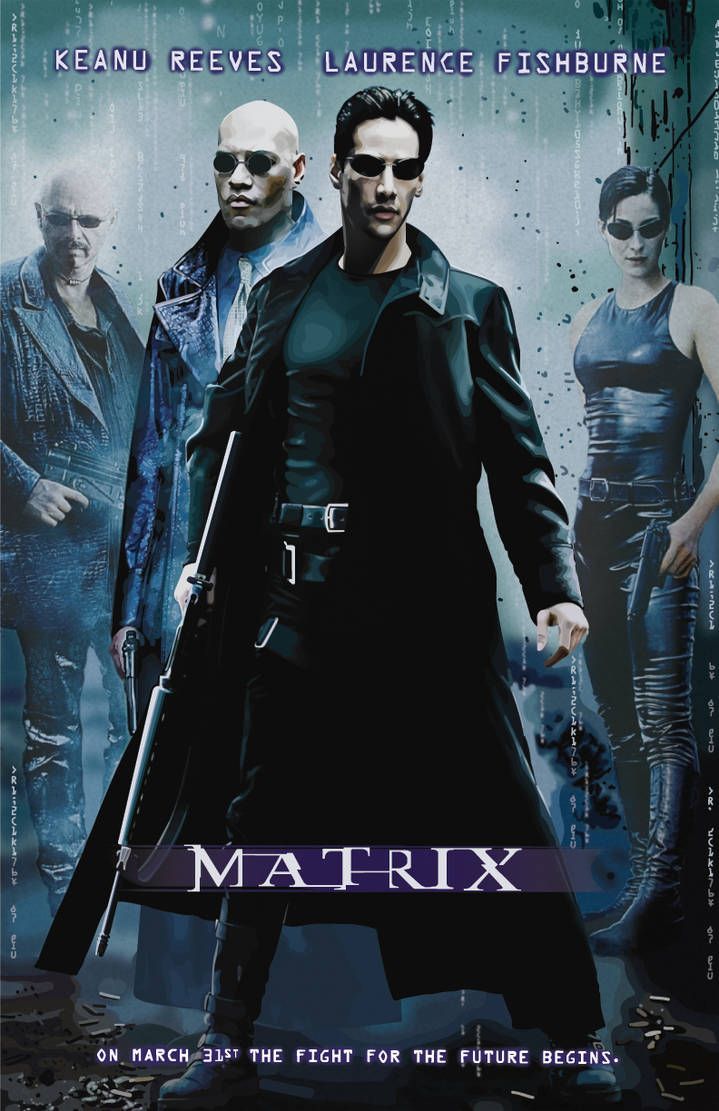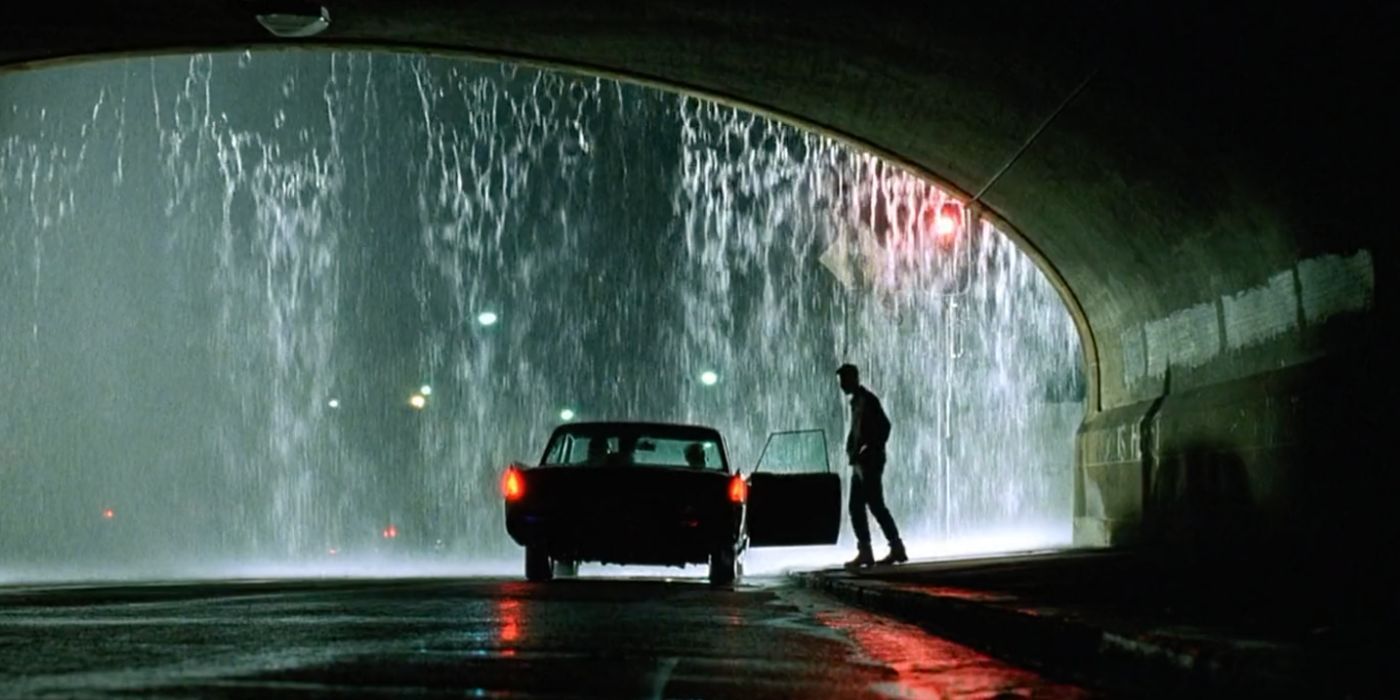The Matrix is one of the most influential science fiction franchises in the history of cinema, and has proven to be one of the last true examples of boldly original Hollywood filmmaking made on a massive scale. Although the end of the 20th century saw the emergence of new sci-fi franchises such as Star Wars, Alien, Predator, The Terminator, Robocop, and Back to the Future, this leap towards originality began to deplete as the 21st century emerged. Nonetheless, what Lilly and Lana Wachowski achieved with The Matrix was nothing short of miraculous; they created an original post-apocalyptic tale that featured instantly recognizable characters, included deep Greek philosophy and religious allusions, forced viewers to question the nature of their own reality, and featured a groundbreaking martial arts style, subsequently referred to a “bullet time,” that has been utilized in action movies ever since.
The legacy of The Matrix franchise is an interesting one to consider, as the sequels all received more mixed reviews. While some viewers had objections to the bold, anti-capitalist themes that the Wachowskis were dealing with, others simply felt that the franchise had tried too hard to sustain its worldbuilding, and thus become overcomplicated. It’s no coincidence that The Matrix sequels were released around the same time as the Star Wars prequels, as both have subsequently been reassessed by passionate fans that felt that the initial critical ambivalence was missing the point. Although the last installment in the franchise underperformed, signifying that the series might have reached its natural ending point, there is word that a fifth film in The Matrix saga will be coming from Drew Goddard, the talented writer/director behind Cabin in the Woods and Bad Times At The El Royale. Here is every The Matrix film, ranked by entertainment value.
4
‘The Matrix Revolutions’ (2003)
Directed by Lilly and Lana Wachowski
The Matrix Revolutions is easily the least watchable film in The Matrix franchise because it exists mostly as a coda to the events of the previous films. While The Matrix does have a very dense world that requires a lot of explanation in order to properly set off, The Matrix Revolutions spends so much time explaining the prophecy of “The One” and what the invasion of the machines will mean to Zion that it is very hard to watch without having recently seen the previous two entries. The film is perhaps the most action-packed of the entire series, but there aren’t many memorable fights in comparison to its predecessors; generally, The Matrix films tend to work better when they are focusing on hand-to-hand combat, as the massive scale battles between big armies just aren’t as interesting.
The biggest issue with The Matrix Revolutions is its characters, as the new cast members introduced simply aren’t as interesting as the original trio from the first film. Keanu Reeves is always fantastic as Neo, but his character is less empathetic in The Matrix Revolutions, as he is treated as a messianic figure that doesn’t have the same heroic qualities as he previously did. While it’s always been a dark series, the sheer sadness of having so many main characters die at the end of The Matrix Revolutions makes it less fun to watch, especially since many deaths felt like unnecessary moments inserted just to shock the audience. The Matrix Revolutions has too many moments of visual spectacle and interesting philosophical concepts to ever be considered a “bad movie,” but it’s the one film in the series that can’t really be enjoyed on its own.
3
‘The Matrix Resurrections’ (2021)
Directed by Lana Wachwoski
The Matrix Resurrections is one of the most ambitious blockbusters of the 21st century, as the fourth installment in the series wrestled with the cultural legacy that the original series had. Despite the fact that The Matrix was a flagrantly anti-authoritarian work that challenged viewers to speak truth to power, the films had become yet another piece of intellectual property to exist within the broader library owned by Warner Brothers; similarly, the central metaphor for The Matrix hinged on transgender identity, but the use of the “red pill” plot device had been co-opted by right wing extremists. Wachowski was able to help redefine what The Matrix was all about by showing how Neo was reborn, and meant to be the hero for a new generation that could shape the world in his own image.
The Matrix Resurrections dives deep into the mythology that had been set up in the original trilogy, but it is ultimately a love story about how Neo and Trinity (Carrie Anne-Moss) were bound to keep finding each other within different realities. Although the assertion of The Matrix had traditionally been that it was up to “The One” to save humanity from being controlled by an omnipresent artificial intelligence, The Matrix Resurrections brought up the idea that two people who cared about each other were going to be more effective than any individual could ever be. Although the film’s ability to challenge toxic fans and revamp the style of the saga were admirable, the only real failing of The Matrix Resurrections is its action; while there are plenty of fun sequences, the hand-to-hand combat isn’t nearly as creative as it was in the first three films.
2
‘The Matrix Reloaded’ (2003)
Directed by Lilly and Lana Wachowski
The Matrix Reloaded is one of the most kinetic action movies ever made, and while it isn’t as compelling on a narrative level as its predecessor, it’s hard to not get swept up in the groundbreaking stunt work and visual effects that the Wachowskis were able to pull off. While the first film had been fairly grounded in its depiction of hand-to-hand combat, The Matrix Reloaded expanded the possibilities of what Neo could do within The Matrix itself now that he had reached his full potential. While there was concern on what the ramifications of bringing back Agent Smith (Hugo Weaving) would actually mean, the notion of him cloning himself to create an army led to an imaginative work of sci-fi that still looks better than a majority of today’s big budget films.
The Matrix Reloaded is able to keep the emotional stakes of the franchise high, as while Morpheus (Laurence Fishburne) is sadly not given much to do, the dynamic between Neo and Trinity is still very compelling; in fact, the film’s conclusion, in which Neo is forced to strike out on his own to save Trinity, is one of the best cliffhangers in a science fiction film since the iconic ending of The Empire Strikes Back. Although it features what may be the single best car chase in a movie since The French Connection, The Matrix Reloaded does get confusing in some moments due to the storyline involving The Architect. While viewers that have seen the film multiple times and have context about the prophecy might be more lenient to these moments, the high amount of exposition can be a burden, as it is simply not conveyed in a way that is visually or emotionally compelling.
1
‘The Matrix’ (1999)
Directed by Lilly and Lana Wachowski
The Matrix is one of the best science fiction, action, and philosophical films ever made, and stood out within the packed film year of 1999. Although 1999 was seen as a transitional moment in film history that saw the emergence of many great directors, no one was prepared for the radical vision that The Wachowskis had crafted. The Matrix fulfilled the void of imaginative, thought-provoking science fiction that had been empty, especially in the aftermath of the underwhelming reception to Star Wars: Episode I- The Phantom Menace, which was released the same summer. However, it also spoke to the fear of technology that was very present in the world of Y2K; the notion that the world was all a simulation seemed more than probable, and The Matrix raised salient points about how conforming to authoritarian and capitalistic standards would lead to a lack of individualism. As groundbreaking as the digital effects were, it was the story that made The Matrix such a phenomenon.
The Matrix created a new style of modern cyberpunk, neo-noir tech thrillers, but the film was certainly not style over substance. The writing of the characters was particularly strong, and gave Reeves the opportunity to give one of the best performances of his career; few actors would have been able to showcase the burden of knowledge that Neo is faced with in the same way that Reeves did, and it was even more impressive knowing that he did his own stunts. While it’s a film that can be analyzed to death because of all the latent details that are hidden in the background, The Matrix is also a brilliantly paced film that rarely drags. Although cinephiles at large may be mixed on just how groundbreaking the Wachowskis were, as they have not been nearly as successful with their recent work, but The Matrix is without a doubt a masterpiece that will stand the test of time.

The Matrix
- Release Date
-
March 31, 1999
- Runtime
-
136 minutes
Source link





